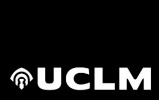Transmissible viral diseases (I)

15:00 – 15:20 – Investigating the impact of disease on aboriginal Australia with stochastic multi-patch epidemic models / Presenting author: Matthew C. Nitschke.
15:20 – 15:40 – Assesing the transmission potential of mpox in East Asia during 2022- 2023: A focus on Taiwan, China, Japan, and South Korea / Presenting author: Eunha Shim.
15:40 – 16:00 – Modelling intra- and inter-hospital transmission of Middle East Respiratory Syndrome and preventive strategy / Presenting author: Youngsuk Ko.
16:00 – 16:20 – Mathematical modelling of measles infection dose responses / Presenting author: Anelone Anet.
Epidemic networks

15:00 – 15:20 – Effective stochastic simulation of adaptative networks in epidemiology. / Presenting author: Nils Gubela.
15:20 – 15:40 – A hierarchically structured population model with delay. / Presenting author: Jozsef Farkas.
15:40 – 16:00 – Epidemics on evolving scale-free graphs are critical. / Presenting author: Gil Ariel. — Cancelled
16:00 – 16:20 – Periodic oscillations in an epidemic model with loss of immunity. / Presenting author: Angel Calsina.
Air Borne

15:00 – 15:20 – A novel model of tuberculosis progression using CompuCell 3D. / Presenting author: James Doran.
15:20 – 15:40 – Epidemiological implications of symptom propagation in respiratory pathogens. / Presenting author: Phoebe Asplin.
15:40 – 16:00 – Respiratory viruses in care homes: Development of transmission models. / Presenting author: Irene Garcia.
16:00 – 16:20 – The Wells-Riley model revisited: Randomness, heterogeneity and transient behaviours. / Presenting author: Alexander J. Edwards
COVID (I)

15:00 – 15:20 – Estimating unreported COVID-19 infections in Korea from internet search data with epidemic risk perception hybrid model. / Presenting author: Minji Lee.
15:20 – 15:40 – EpiBeds: Data-informed shot-term projections of the COVID-19 hospital and care home burden in the UK. / Presenting author: Lorenzo Pellis.
15:40 – 16:00 – SIS-type COVID-19 spread with collective effects. / Presenting author: Daniel Strömbom.
16:00 – 16:20 – Diverse methodological analysis of movement patterns by purpose and age in South Korea during COVID-19. / Presenting author: Daeil Jang.
Bacteria

15:00 – 15:20 – Model-based experimental design to identify microbe interactions / Presenting author: Geoffrey Roudaut
15:20 – 15:40 – Modelling tripartite microbial population dynamics / Presenting author: Tanvir Hassan
15:40 – 16:00 – Coupling cell size regulation and proliferation dynamics of microbes reveals cell division based on surface area / Presenting author: Abhyudai Singh.
16:00 – 16:20 – Anticipating pathogen dynamics using Bayesian model-averaging with partial differential equations / Presenting author: Candy Abboud Edwards
Cancer Modelling

15:00 – 15:20 –Higher-Dimensional (HD) partial differential equation (PDE) approaches for acute myeloid leukaemia (AML) / Presenting author: Arran Hodgkinson.
15:20 – 15:40 – Exploring cancer processes through the boolean networks framework / Presenting author: Gregorio Rubio-Navarro
15:40 – 16:00 – Pantograph type partial differential equations and tumor growth / Presenting author: Ali Ashher Zaidi.
16:00 – 16:20 – New conserved quantities and modern symmetry analysis applied to a dissipative Westervelt equation / Presenting author: Tamara María Garrido Letrán
Hematopoietic cancers

15:00 – 15:20 – Mathematical model of CAR-T cell therapy for a B-cell Lymphoma lymph node / Presenting author: Soukaina Sabir
15:20 – 15:40 -Understanding pre-malignant stem cell dynamics: Lessons from clonal hematopoiesis and stem cell transplantation / Presenting author:Thomas Stiehl
15:40 – 16:00 – A mathematical modeling approach to clonal architecture of hematopoietic cancers / Presenting author: Johnny Ottesen
16:00 – 16:20 – Mathematical modeling unveils optimization strategies for targeted radionucline therapy of blood cancers / Presenting author: Maxim Kuznetsov
Model reduction and identifiability

15:00 – 15:20 – Scalable Machine Learning methods to detect meaningful lineages in
viral populations from large amounts of genetic data / Presenting author: Roberto Cahuantzi.
15:20 – 15:40 – Data-Driven model reduction for biomedical data / Presenting author: Ismaila
Muhammed
15:40 – 16:00 – Variable selection for nonlinear dimensionality reduction of biological
datasets through bootstrapping of correlation networks / Presenting author: David G. Aragonés.
16:00 – 16:20 – Analytical Bayesian Framework for Differential Gene expression
analysis on RNA-Seq data / Presenting author: Franziska Hoerbst
Cell biology

15:00 – 15:20 – Investigating spatial signatures of extrachromosomal DNA in cancer with agent-based modelling / Presenting author: Magnus Haughey
15:20 – 15:40 -Integrated understanding of human PGCLC development using multi-scale mathematical modeling of gene-cel-BMP dynamics/ Presenting author: Michito Ujino
15:40 – 16:00 – Mathematical modeling of subunit formation in Pex14 / Presenting author: Mio Heinrich
16:00 – 16:20 – Identifying the number of rate-limiting steps in transcription initiation, mRNA splicing and nuclear export from mRNA count data / Presenting author: Andrew Nicoll
New directions for stochastic models on epidemics (II)

Organizers: Jacob Curran-Sebastian & Thomas House
15:00 – 15:20 – Time series models of epidemics and associated tree structures / Presenting author: Niket Thakkar.
15:20 – 15:40 – Long-term behaviour of a stochastic epidemic in a growing population / Presenting author: Malwina Luczak.
15:40 – 16:00 – Modeling the impact of human movement on the spread of Dengue Virus: the importance of appropiate spatial scales / Presenting author: Alun Lloyd.
16:00 – 16:20 – Modeling spreading on networks / Presenting author: James Gleeson.



